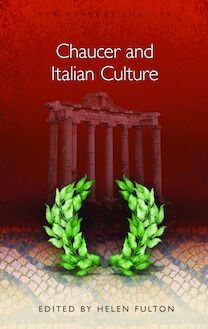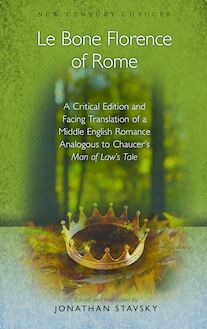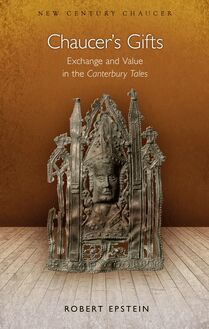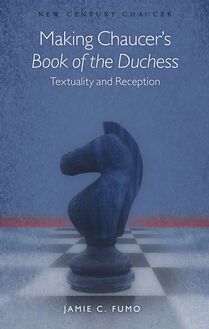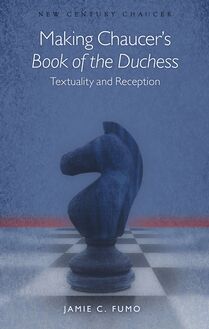Chaucer and Italian Culture , livre ebook
290
pages
English
Ebooks
2021
Obtenez un accès à la bibliothèque pour le consulter en ligne En savoir plus
Découvre YouScribe en t'inscrivant gratuitement
Découvre YouScribe en t'inscrivant gratuitement
290
pages
English
Ebooks
2021
Obtenez un accès à la bibliothèque pour le consulter en ligne En savoir plus
Publié par
Date de parution
15 janvier 2021
Nombre de lectures
1
EAN13
9781786836793
Langue
English
Poids de l'ouvrage
3 Mo
Chaucerian scholarship has long been intrigued by the nature and consequences of Chaucer’s exposure to Italian culture during his professional visits to Italy in the 1370s. In this volume, leading scholars take a new and more holistic view of Chaucer’s engagement with Italian cultural practice, moving beyond the traditional ‘sources and analogues’ approach to reveal the varied strands of Italian literature, art, politics and intellectual life that permeate Chaucer’s work. Each chapter examines from different angles links between Chaucerian texts and Italian intellectual models, including poetics, chorography, visual art, classicism, diplomacy and prophecy. Echoes of Petrarch, Dante and Boccaccio reverberate throughout the book, across a rich and diverse landscape of Italian cultural legacies. Together, the chapters cover a wide range of theory and reference, while sharing a united understanding of the rich impact of Italian culture on Chaucer’s narrative art.
Contributors
Introduction: Chaucer Imagines Italy - Helen Fulton
1. Chaucerian Diplomacy - William Rossiter
2. The Haunting of Geoffrey Chaucer: Dante, Boccaccio, and the Ghostly Poetics of the Trecento - James Robinson
3. Chorography and Topography: Italian Models and Chaucerian Strategies - Helen Fulton
4. Vision and Touch in Dante and Chaucer - Robert S. Sturges
5. The Aesthetics of ‘Wawes Grene’: Planets, Painting, and Politics in Chaucer’s Knight’s Tale - Andrew James Johnston
6. The Prophetic Eagle in Italy, England, and Wales: Dante, Chaucer, and Insular Political Poetry - Victoria Flood
7. ‘Trophee’ and Triumph in the Monk’s Tale - Leah Schwebel
8. From Imitation to Invention: Chaucer’s Journey from House of Fame to the Nun’s Priest’s Tale - Teresa A. Kennedy
Bibliography
Index
Publié par
Date de parution
15 janvier 2021
Nombre de lectures
1
EAN13
9781786836793
Langue
English
Poids de l'ouvrage
3 Mo
